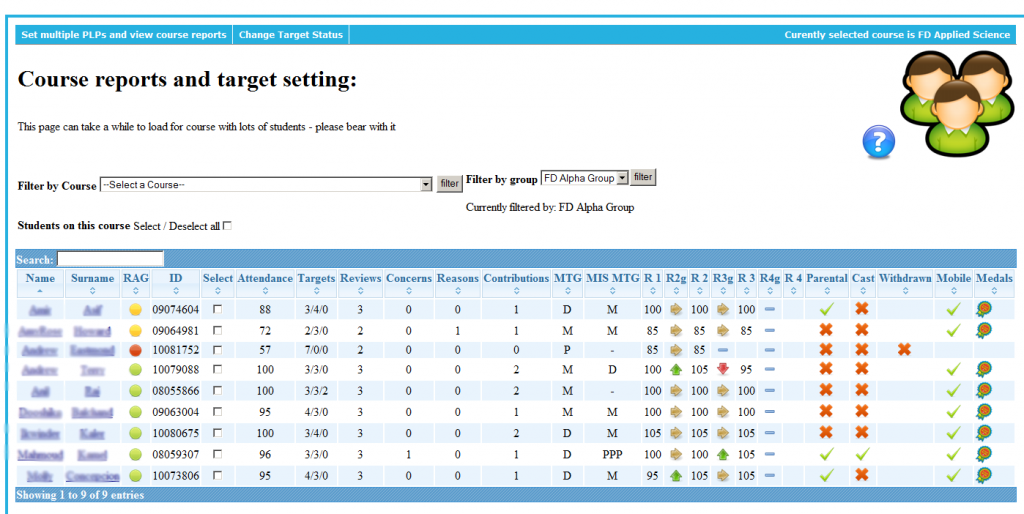Local Developer Success Story: MidKent College
Local developers adapt a Moodle Module to create an integrated personal development planning solution relevant to staff, students and managers.
In this DevCSI case study, Jane Plenderlith investigates a local developer success story from MidKent College, exploring how an enthusiasm for open source solutions helped local developers to create a personal development planning tool that better met the needs of students, staff and managers at the college…
The problem space
With two extensive campuses, MidKent College is one of the largest further education and training providers in the south-east of England. Managers had identified an ongoing problem with the College’s proprietary Personal Development Planning (PLP) system, which was largely unused by staff, ignored by students, and no longer meeting management needs. The College wanted a solution which enabled information to be easily shared, and integrated with their Moodle VLE.
What the developer did
e-Learning Manager Rosie Douglas is an enthusiastic advocate of open source systems and an active participant in the Moodle development community. She was familiar with the open source PLP modules (Moodle plug-in) created by the University of London Computer Centre (ULCC). These modules allow tutors, personal tutors and students to set targets, undertake progress reviews, conduct course reviews and highlight concerns.
Dan Attwood, recently appointed VLE developer and systems administrator, was tasked with customising the ULCC base modules to meet College needs. Initial requirements were identified through discussion with academic managers and IT staff. A core development team of three took responsibility for overseeing and implementing the changes. Early development and testing were undertaken using a development server. New features were pushed live with a small team of keen testers, and priority given to fixing any identified bugs. Says Dan:
“In effect we were operating a kind of loose SCRUM methodology. We held regular meetings to discuss new features, then implementing these for testing was a kind of sprint. Pushing straight to live in very small increments has proved to be the best way to rapidly create new features and respond to requests from staff. It did also mean that bugs were exposed to end users, but these were always small and rapidly fixed. We have now taken to labelling some features as beta with the aim of encouraging feedback, and this is proving very effective.”
Tangible business benefits
Development and implementation costs for the bespoke Moodle PLP module are no more, and probably less, than the costs of the previous proprietary system. However, the principal benefit for the College is having a flexible, tailor-made system that is widely used and appreciated by students and staff, and meets management needs. Information that previously had to be gathered from various sources is now available in one place for students, staff, parents, personal tutors and academic tutors to review. The inclusion of a group update function has saved a lot of staff time accessing individual student accounts:
“They love it that we listened to what they said, went away and came up with a solution, and it worked!”
There is evidence from students that the new system is having a positive impact on their learning experience. Game-oriented facilities with feedback and badges for work in class are well received by some groups:
“Some staff were initially quite sceptical, but then the students were asking for the printing facility to be enabled so they could print off their badges and take them home to show their mums!”
Playing an active role in the open source development community has raised the profile of the College nationally and particularly in the South-East region:
“We go to conferences and talk about what we have done,” says Dan. “People are interested in our code and we are exploring ways of sharing it with other institutions.”
Why use a local developer?
The core team understood the business processes of the institution from both a technical and an academic viewpoint. They were able to disseminate information quickly, and support each other with responding to queries from various quarters.
“I was relatively new to the College and to the academic environment,” says Dan. “but I was in the right place to ask questions and respond quickly when problems or queries arose.”
Working within an open source development support community also has advantages, and the team is currently exploring possibilities for sharing the code for the customisation of the original ULCC module with other FE providers in the area.










Recent Comments